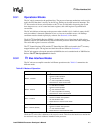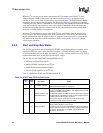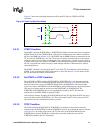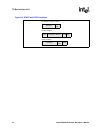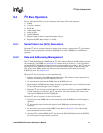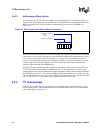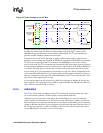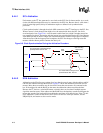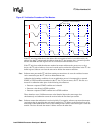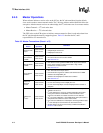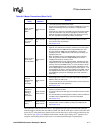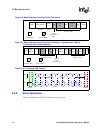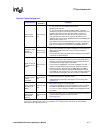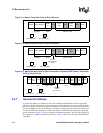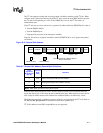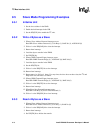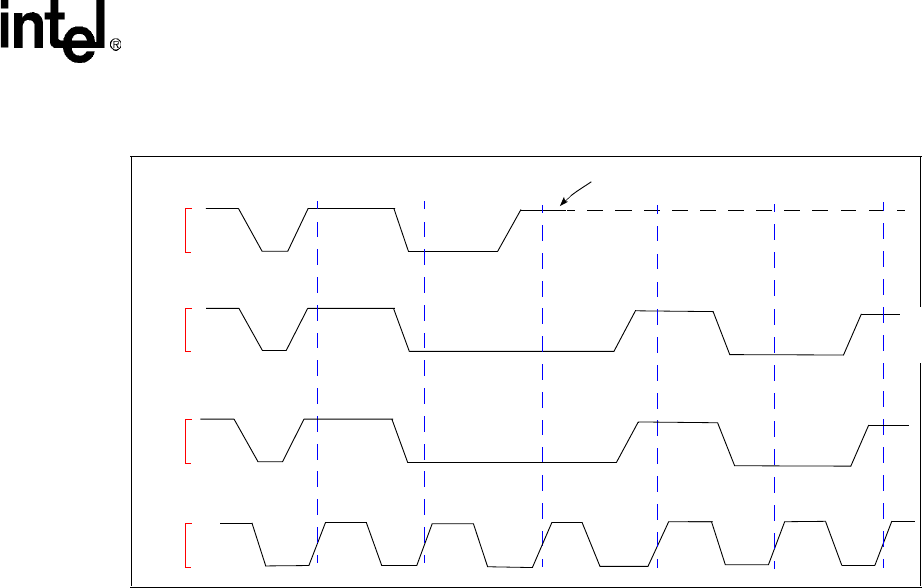
Intel® PXA255 Processor Developer’s Manual 9-11
I
2
C Bus Interface Unit
If the I
2
C unit loses arbitration as the address bits are transferred and it is not addressed by the
address bits, the I
2
C unit resends the address when the I
2
C bus becomes free. A resend is possible
because the IDBR and ICR registers are not overwritten when arbitration is lost.
If the I
2
C unit loses arbitration because another bus master addresses the processor as a slave
device, the I
2
C unit switches to slave-receive mode and overwrites the original data in the I
2
C data
buffer register. Software can clear the start and re-initiate the master transaction.
Note: Software must prevent the I
2
C unit from starting a transaction to its own slave address because
such a transaction puts the I
2
C unit in an indeterminate state.
Arbitration has boundary conditions in case an arbitration process is interrupted by a repeated
START or STOP condition transmitted on the I
2
C bus. To prevent errors, the I
2
C unit acts as a
master if no arbitration takes place in the following circumstances:
• Between a repeated START condition and a data bit
• Between a data bit and a STOP condition
• Between a repeated START condition and a STOP condition
These situations occur if different masters write identical data to the same target slave
simultaneously and arbitration cannot be resolved after the first data byte transfer.
Note: Software ensures that arbitration is resolved quickly. For example, software can ensure that masters
send unique data by requiring that each master transmit its I
2
C address as the first data byte of any
transaction. When arbitration is resolved, the winning master sends a restart and begins a valid data
transfer. The slave discards the master’s address and use the other data.
Figure 9-7. Arbitration Procedure of Two Masters
SDA
SCL
Data 1
Data 2
Transmitter 1 Leaves Arbitration
Data 1 SDA



